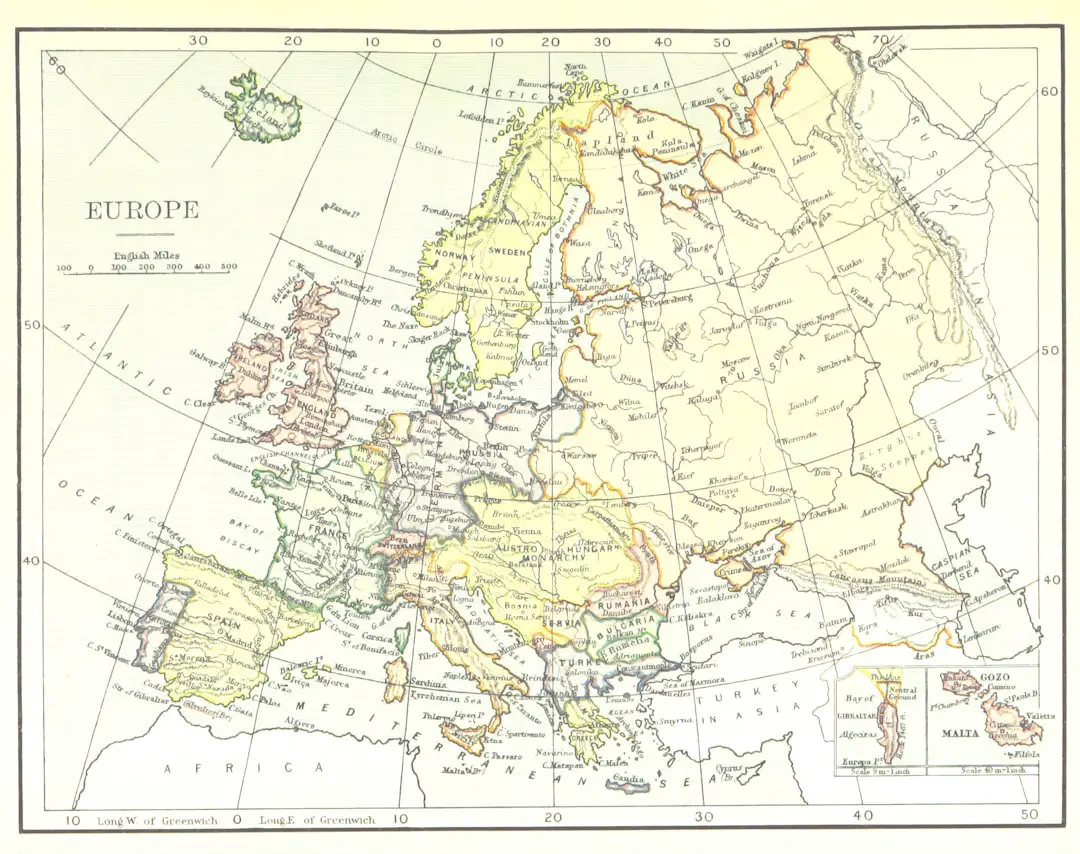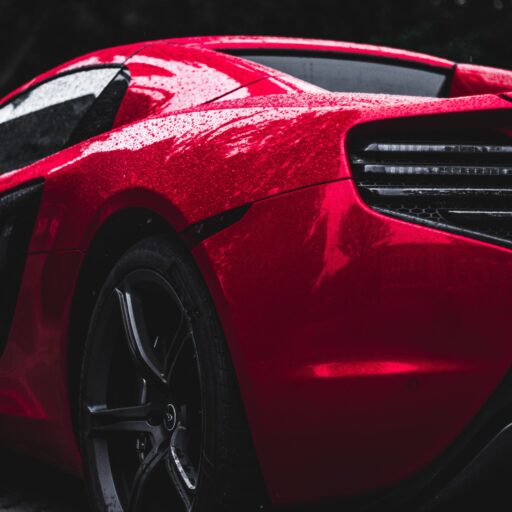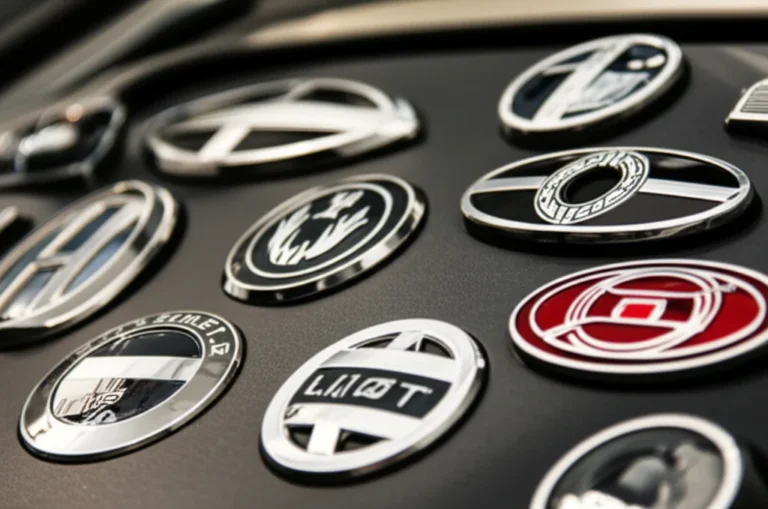Support our educational content for free when you purchase through links on our site. Learn more
Where Are All Car Brands From? 🌍 Discover 11 Origins in 2025
Ever wondered if your “American” muscle car was really born in Detroit—or maybe somewhere else entirely? Or how a sleek Swedish Volvo ended up owned by a Chinese giant? The world of car brands is a fascinating global puzzle, where heritage, ownership, and manufacturing cross borders in surprising ways. Buckle up as we take you on a whirlwind tour of 11 major automotive origins, uncovering the stories behind your favorite brands and revealing why knowing where your car truly comes from matters more than ever in 2025.
From the birthplace of the first gasoline car in Germany to the electric vehicle revolution shaking up China and the USA, this article dives deep into the origins, alliances, and future of car brands worldwide. Whether you’re a gearhead, a curious buyer, or just love a good automotive story, you’ll find insights that will change the way you look at your ride forever. Ready to decode your car’s DNA and explore the global symphony behind every engine roar? Let’s roll!
Key Takeaways
- Car brands often have complex, multinational origins—ownership, design, and manufacturing can span continents.
- 11 key countries dominate the automotive landscape, from the USA’s muscle and innovation to Italy’s passion and China’s EV surge.
- Global alliances and mergers blur brand lines, creating fascinating collaborations and shared technologies.
- Manufacturing location doesn’t always match brand origin, so “Made in” labels can be misleading.
- The electric vehicle revolution is reshaping brand origins and industry dynamics with new players and fresh alliances.
Ready to explore or shop your favorite brands?
- 👉 Shop Ford, Tesla, and Hyundai models: TrueCar | Edmunds | Official Brand Sites
- Discover luxury and performance from BMW, Mercedes, and Ferrari: Car Brand Comparisons
Dive in and become a global car brand insider today! 🚗💨
Table of Contents
- ⚡️ Quick Tips and Facts
- The Global Tapestry of Automotive Origins: A Historical Drive 🌍
- Unpacking the “Where From?” Conundrum: It’s More Than Just a Passport! 🤔
- The Automotive Powerhouses: A Global Tour of Car Brand Origins
- 1. 🇺🇸 North America: The Land of Innovation and Muscle
- 2. 🇩🇪 Germany: Engineering Prowess and Precision
- 3. 🇯🇵 Japan: Reliability, Efficiency, and Innovation
- 4. 🇰🇷 South Korea: Rapid Ascent and Tech-Forward Design
- 5. 🇨🇳 China: The New Global Giant and EV Frontier
- 6. 🇬🇧 United Kingdom: Heritage, Luxury, and Niche Excellence
- 7. 🇫🇷 France: Style, Comfort, and Quirky Charm
- 8. 🇮🇹 Italy: Passion, Performance, and Artistry
- 9. 🇸🇪 Sweden: Safety, Innovation, and Distinctive Design
- 10. 🇮🇳 India: Emerging Markets and Global Ambitions
- 11. Other Notable Automotive Nations: From Czech Republic to Australia and Beyond! 🌐
- Beyond Borders: Understanding Global Ownership and Alliances 🤝
- Manufacturing vs. Origin: Why Your “American” Car Might Be Built Elsewhere 🏭
- The Electric Revolution: New Brands, New Origins ⚡️
- Resurrected Legends: The Curious Case of “Zombie Brands” 🧟
- Decoding Your Car’s DNA: How to Find Its True Origin 🕵️♀️
- The Road Ahead: What the Future Holds for Car Brand Origins 🔮
- Conclusion: The World is Your Automotive Oyster! 🌎
- Recommended Links 🔗
- FAQ: Your Burning Questions Answered 🔥
- Reference Links 📚
⚡️ Quick Tips and Facts
Did you know that your “American” car might actually be built in Mexico? 🤯 Or that a Swedish brand could be owned by a Chinese company? 🇨🇳🇸🇪 The world of car brands is a fascinating mix of history, innovation, and global partnerships.
Let’s dive into some quick facts to get you started:
- Car brands are not always from the country you think! Many car brands are owned by companies in different countries, and their cars are manufactured in various locations around the world.
- The “Made in” label doesn’t always tell the whole story. While the country of manufacture is important, it doesn’t necessarily reflect the brand’s origin or its core values.
- The automotive landscape is constantly evolving. New brands are emerging, existing brands are merging, and manufacturing locations are shifting.
Ready to explore the global tapestry of car brands? Let’s hit the road and discover the stories behind your favorite vehicles! 🚗
The Global Tapestry of Automotive Origins: A Historical Drive 🌍
The history of car brands is a story of innovation, competition, and cultural influence. From the early days of the horseless carriage to the rise of the electric vehicle, the automotive industry has been shaped by global events and technological advancements.
Here’s a quick timeline of key milestones:
- 1886: Karl Benz patents the first gasoline-powered automobile in Germany. 🇩🇪
- 1908: Henry Ford revolutionizes car production with the Model T in the United States. 🇺🇸
- 1930s: The Japanese automotive industry begins to emerge, focusing on affordability and reliability. 🇯🇵
- 1970s: The oil crisis leads to a focus on fuel efficiency and smaller cars. 🛢️
- 1980s: Japanese brands gain global dominance, challenging American and European manufacturers. 🇯🇵
- 1990s: South Korea emerges as a major automotive player, known for its value and technology. 🇰🇷
- 2000s: The rise of the internet and e-commerce transforms the automotive industry, with online car sales and digital marketing becoming increasingly important. 💻
- 2010s: The electric vehicle revolution begins, with Tesla leading the charge. ⚡️
The automotive industry is a dynamic and ever-changing landscape. As we move into the future, we can expect to see even more innovation, global collaboration, and exciting new technologies.
Unpacking the “Where From?” Conundrum: It’s More Than Just a Passport! 🤔
When you ask “Where is this car brand from?”, you’re actually asking a complex question. It’s not just about the country where the car was assembled, but also about:
- The brand’s origins: Where was the company founded? What are its core values and heritage?
- Ownership: Who owns the brand? Is it a subsidiary of a larger company?
- Manufacturing: Where are the cars manufactured? Does the brand have multiple production facilities?
- Design and engineering: Where are the cars designed and engineered? Are there any key partnerships involved?
Think of it like a family tree. A car brand’s “roots” might be in one country, but its branches might extend across the globe.
The Automotive Powerhouses: A Global Tour of Car Brand Origins
Let’s embark on a journey around the world, exploring the automotive powerhouses that have shaped the industry:
1. 🇺🇸 North America: The Land of Innovation and Muscle
North America is synonymous with muscle cars, SUVs, and pick-up trucks. American brands like Ford, Chevrolet, and Dodge have a long history of innovation and engineering prowess.
- Ford: Founded in 1903, Ford is known for its iconic Model T, the Mustang, and the F-Series trucks.
- Chevrolet: Founded in 1911, Chevrolet is known for its Camaro, Corvette, and Silverado trucks.
- Dodge: Founded in 1900, Dodge is known for its Challenger, Charger, and Ram trucks.
But North America is also home to newer brands like Tesla, Rivian, and Lucid, which are leading the electric vehicle revolution. These brands are pushing the boundaries of automotive technology and design.
2. 🇩🇪 Germany: Engineering Prowess and Precision
Germany is renowned for its engineering excellence and precision manufacturing. German brands like BMW, Mercedes-Benz, and Volkswagen are known for their luxury, performance, and reliability.
- BMW: Founded in 1916, BMW is known for its 3 Series, 5 Series, and X5 SUVs.
- Mercedes-Benz: Founded in 1926, Mercedes-Benz is known for its S-Class, C-Class, and G-Wagon SUVs.
- Volkswagen: Founded in 1937, Volkswagen is known for its Golf, Passat, and Tiguan SUVs.
Germany is also home to a number of smaller, niche brands like Porsche, Audi, and Opel, which offer a wide range of vehicles from sports cars to luxury sedans.
3. 🇯🇵 Japan: Reliability, Efficiency, and Innovation
Japan is known for its reliability, efficiency, and innovation. Japanese brands like Toyota, Honda, and Nissan have a reputation for building cars that are durable, fuel-efficient, and technologically advanced.
- Toyota: Founded in 1937, Toyota is known for its Camry, Corolla, and RAV4 SUVs.
- Honda: Founded in 1948, Honda is known for its Civic, Accord, and CR-V SUVs.
- Nissan: Founded in 1933, Nissan is known for its Altima, Maxima, and Pathfinder SUVs.
Japan is also home to a number of smaller brands like Mazda, Subaru, and Suzuki, which offer a diverse range of vehicles from compact cars to sports cars.
4. 🇰🇷 South Korea: Rapid Ascent and Tech-Forward Design
South Korea has emerged as a major automotive player in recent decades, known for its value, technology, and design. Korean brands like Hyundai and Kia have made significant strides in the global market, offering a wide range of vehicles at competitive prices.
- Hyundai: Founded in 1967, Hyundai is known for its Sonata, Elantra, and Tucson SUVs.
- Kia: Founded in 1944, Kia is known for its Optima, Forte, and Sportage SUVs.
South Korea is also home to a number of smaller brands like Genesis, SsangYong, and Daewoo, which offer a diverse range of vehicles from luxury sedans to rugged SUVs.
5. 🇨🇳 China: The New Global Giant and EV Frontier
China is rapidly becoming a global automotive powerhouse, with a growing number of domestic brands and a strong focus on electric vehicles. Chinese brands like BYD, NIO, and Xpeng are making waves in the EV market, offering innovative technologies and competitive pricing.
- BYD: Founded in 1995, BYD is known for its electric buses, cars, and trucks.
- NIO: Founded in 2014, NIO is known for its premium electric SUVs and sedans.
- Xpeng: Founded in 2014, Xpeng is known for its electric SUVs and sedans.
China is also home to a number of other established brands like Great Wall, Geely, and Chery, which are expanding their global reach.
6. 🇬🇧 United Kingdom: Heritage, Luxury, and Niche Excellence
The United Kingdom has a rich automotive heritage, with brands like Rolls-Royce, Bentley, and Aston Martin known for their luxury, performance, and craftsmanship.
- Rolls-Royce: Founded in 1906, Rolls-Royce is known for its Phantom, Ghost, and Cullinan SUVs.
- Bentley: Founded in 1919, Bentley is known for its Continental GT, Flying Spur, and Bentayga SUVs.
- Aston Martin: Founded in 1913, Aston Martin is known for its DB11, Vantage, and DBX SUVs.
The UK is also home to a number of smaller, niche brands like McLaren, Lotus, and Morgan, which offer a unique blend of heritage and innovation.
7. 🇫🇷 France: Style, Comfort, and Quirky Charm
France is known for its style, comfort, and quirky charm. French brands like Renault, Peugeot, and Citroën offer a unique blend of practicality and elegance.
- Renault: Founded in 1898, Renault is known for its Clio, Mégane, and Captur SUVs.
- Peugeot: Founded in 1889, Peugeot is known for its 208, 308, and 5008 SUVs.
- Citroën: Founded in 1919, Citroën is known for its C3, C4, and C5 Aircross SUVs.
France is also home to a number of smaller brands like DS Automobiles, Alpine, and Bugatti, which offer a diverse range of vehicles from luxury sedans to high-performance sports cars.
8. 🇮🇹 Italy: Passion, Performance, and Artistry
Italy is known for its passion, performance, and artistry. Italian brands like Ferrari, Lamborghini, and Maserati are synonymous with luxury, speed, and design.
- Ferrari: Founded in 1947, Ferrari is known for its 488 GTE, F8 Tributo, and SF90 Stradale.
- Lamborghini: Founded in 1963, Lamborghini is known for its Aventador, Huracán, and Urus SUVs.
- Maserati: Founded in 1914, Maserati is known for its Ghibli, Quattroporte, and Levante SUVs.
Italy is also home to a number of smaller brands like Alfa Romeo, Fiat, and Abarth, which offer a diverse range of vehicles from compact cars to performance hatchbacks.
9. 🇸🇪 Sweden: Safety, Innovation, and Distinctive Design
Sweden is known for its safety, innovation, and distinctive design. Swedish brands like Volvo and Saab have a reputation for building cars that are safe, reliable, and stylish.
- Volvo: Founded in 1927, Volvo is known for its XC40, XC60, and XC90 SUVs.
- Saab: Founded in 1937, Saab is known for its 9-3, 9-5, and 9-4X SUVs.
Sweden is also home to a number of smaller brands like Koenigsegg, Polestar, and Scania, which offer a diverse range of vehicles from high-performance sports cars to heavy-duty trucks.
10. 🇮🇳 India: Emerging Markets and Global Ambitions
India is a rapidly growing automotive market, with a number of domestic brands emerging as global players. Indian brands like Tata and Mahindra are known for their affordability, reliability, and innovative technologies.
- Tata: Founded in 1945, Tata is known for its Nexon, Harrier, and Safari SUVs.
- Mahindra: Founded in 1945, Mahindra is known for its Scorpio, XUV500, and Thar SUVs.
India is also home to a number of other brands like Maruti Suzuki, Hyundai, and Kia, which have established a strong presence in the Indian market.
11. Other Notable Automotive Nations: From Czech Republic to Australia and Beyond! 🌐
The automotive world is a diverse and exciting place, with many other countries contributing to the global landscape. Here are a few more notable automotive nations:
- Czech Republic: Home to Škoda, known for its Octavia, Superb, and Kodiaq SUVs.
- Australia: Home to Holden, which was once a major player in the Australian market, but is now defunct.
- South Africa: Home to a number of niche brands like Perana Performance Group and Advanced Automotive Design.
- Canada: Home to a number of smaller brands like Campagna, Felino Corporation, and INKAS.
- Mexico: Home to a number of brands that manufacture vehicles for global markets, including Ford, General Motors, and Volkswagen.
The automotive industry is a truly global phenomenon, with brands and manufacturing facilities located in every corner of the world.
Beyond Borders: Understanding Global Ownership and Alliances 🤝
The automotive industry is characterized by global ownership and alliances. Many car brands are owned by companies in different countries, and they often collaborate on design, engineering, and manufacturing.
Here are a few examples of global ownership and alliances:
- Volkswagen Group: Owns Audi, Bentley, Bugatti, Lamborghini, Porsche, SEAT, Škoda, and Volkswagen.
- Stellantis: Owns Chrysler, Dodge, Jeep, Ram, Fiat, Alfa Romeo, Lancia, Maserati, Opel, Peugeot, Citroën, DS Automobiles, and Vauxhall.
- Renault-Nissan-Mitsubishi Alliance: A strategic partnership between Renault, Nissan, and Mitsubishi.
- Toyota Group: Owns Lexus, Daihatsu, and Hino.
These alliances allow car brands to share resources, technology, and expertise, leading to greater innovation and efficiency.
Manufacturing vs. Origin: Why Your “American” Car Might Be Built Elsewhere 🏭
While a car brand’s origin might be in one country, its cars might be manufactured in another. This is due to a number of factors, including:
- Cost of labor: Manufacturing costs can vary significantly from country to country.
- Availability of resources: Some countries have more readily available resources, such as skilled labor, raw materials, and manufacturing facilities.
- Government incentives: Some governments offer incentives to attract automotive manufacturers, such as tax breaks and subsidies.
- Market demand: Car brands often manufacture their vehicles in countries where there is strong demand for their products.
For example, a Ford Mustang might be manufactured in Mexico, a Toyota Camry might be manufactured in the United States, and a BMW 3 Series might be manufactured in Germany.
It’s important to note that the country of manufacture doesn’t necessarily reflect the quality or reliability of a car. Many car brands have manufacturing facilities in multiple countries, and they maintain high standards of quality control across all of their plants.
The Electric Revolution: New Brands, New Origins ⚡️
The electric vehicle revolution is shaking up the automotive industry, with new brands emerging and established brands investing heavily in EV technology.
Here are a few examples of new EV brands:
- Tesla: Founded in 2003, Tesla is a leading EV manufacturer, known for its Model S, Model 3, and Model Y.
- Rivian: Founded in 2009, Rivian is a US-based EV manufacturer, known for its R1T pickup truck and R1S SUV.
- Lucid: Founded in 2007, Lucid is a US-based EV manufacturer, known for its Air sedan.
- NIO: Founded in 2014, NIO is a Chinese EV manufacturer, known for its premium electric SUVs and sedans.
- Xpeng: Founded in 2014, Xpeng is a Chinese EV manufacturer, known for its electric SUVs and sedans.
These new brands are challenging the traditional automotive industry, offering innovative technologies, sleek designs, and a focus on sustainability.
Resurrected Legends: The Curious Case of “Zombie Brands” 🧟
Sometimes, car brands that have been discontinued or merged are brought back to life, often with a new focus or a new owner. These “zombie brands” can be a source of nostalgia and excitement for car enthusiasts.
Here are a few examples of resurrected car brands:
- DeLorean: The iconic car from the movie “Back to the Future” was resurrected in 2017 by a new company, DeLorean Motors Reimagined.
- TVR: The British sports car manufacturer was revived in 2017 by a new owner, with plans to launch a new model in 2022.
- Saab: The Swedish car brand was acquired by a Chinese company in 2012, but it has yet to launch a new model.
The future of these resurrected brands is uncertain, but they offer a glimpse into the cyclical nature of the automotive industry.
Decoding Your Car’s DNA: How to Find Its True Origin 🕵️♀️
If you’re curious about the true origin of your car, there are a few ways to find out:
- Check the VIN (Vehicle Identification Number): The first three characters of the VIN indicate the country of origin or final point of assembly.
- Look for the “Made in” label: This label is often found on the car’s dashboard or in the owner’s manual.
- Research the brand’s history: You can find information about the brand’s origins, ownership, and manufacturing locations on the brand’s website or on Wikipedia.
By taking a closer look at your car’s DNA, you can gain a deeper understanding of its history and its global connections.
The Road Ahead: What the Future Holds for Car Brand Origins 🔮
The automotive industry is constantly evolving, and the future of car brand origins is uncertain. Here are a few trends to watch:
- The rise of electric vehicles: The EV revolution is creating new opportunities for car brands, and it’s likely to lead to a shift in manufacturing locations and global alliances.
- Increased globalization: The automotive industry is becoming increasingly globalized, with car brands operating in multiple countries and collaborating on design, engineering, and manufacturing.
- The emergence of new technologies: New technologies, such as autonomous driving and artificial intelligence, are likely to have a significant impact on the automotive industry, leading to new brands, new partnerships, and new manufacturing processes.
The road ahead for car brand origins is full of possibilities. We can expect to see a more diverse and dynamic automotive landscape, with new brands, new technologies, and new global connections.
Conclusion: The World is Your Automotive Oyster! 🌎

Well, we’ve taken quite the global road trip, haven’t we? From the muscle cars of Detroit to the sleek EVs of Shenzhen, the story of where car brands come from is as diverse and fascinating as the cars themselves.
Here’s the bottom line:
✅ Car brands often have rich, complex origins that go beyond simple geography.
✅ Ownership and manufacturing are global, with many brands crossing borders in surprising ways.
✅ The rise of electric vehicles and new players is reshaping the automotive map as we speak.
✅ Knowing your car’s origin can deepen your appreciation for its design, engineering, and heritage.
So next time you slide behind the wheel, remember: your car is a product of a global symphony of innovation, culture, and craftsmanship. Whether it’s a German-engineered BMW, a Japanese Toyota, or a Chinese BYD EV, each brand carries a unique story worth celebrating.
Ready to explore more about your favorite brands? Check out our Car Brands in the World for deeper dives and comparisons!
Recommended Links 🔗
👉 Shop and Explore These Iconic Brands:
- Ford: TrueCar | Edmunds | Ford Official Website
- BMW: TrueCar | Edmunds | BMW Official Website
- Toyota: TrueCar | Edmunds | Toyota Official Website
- Tesla: TrueCar | Edmunds | Tesla Official Website
- Hyundai: TrueCar | Edmunds | Hyundai Official Website
- Volvo: TrueCar | Edmunds | Volvo Official Website
- NIO: NIO Official Website | Edmunds NIO
- Rivian: Rivian Official Website | TrueCar Rivian
FAQ: Your Burning Questions Answered 🔥

What are the most popular car brands in the world and their countries of origin?
The global automotive market is dominated by brands from a handful of countries:
- Toyota (Japan): Known for reliability and efficiency, Toyota consistently ranks as the world’s top-selling brand.
- Volkswagen (Germany): A giant with a broad portfolio, including Audi, Porsche, and Bentley.
- Ford (USA): Famous for trucks and muscle cars, Ford remains a staple in North America.
- Hyundai/Kia (South Korea): Rapidly growing brands known for value and design.
- Tesla (USA): The EV pioneer reshaping the industry with cutting-edge technology.
These brands reflect their countries’ engineering philosophies and consumer preferences, from German precision to Japanese reliability and American power.
How many car brands are there in total and what are their respective countries of manufacture?
There are hundreds of car brands worldwide, ranging from global giants to niche manufacturers. According to Wikipedia’s list of current automobile manufacturers by country, countries like China, Germany, Japan, and the USA host dozens of brands each. For example:
| Country | Number of Brands (Approx.) | Notable Brands |
|---|---|---|
| China | 50+ | BYD, Geely, NIO, Great Wall |
| Germany | 20+ | BMW, Mercedes-Benz, Volkswagen, Porsche |
| Japan | 15+ | Toyota, Honda, Nissan, Subaru |
| USA | 30+ | Ford, Chevrolet, Tesla, Rivian |
| South Korea | 5+ | Hyundai, Kia, Genesis |
Manufacturing is often globalized, with many brands producing vehicles in multiple countries to optimize costs and meet local demand.
Which countries produce the most cars and what are the top car brands from each country?
The top car-producing countries are:
- China: The world’s largest car producer, home to domestic brands like BYD and Geely, and manufacturing hubs for foreign brands.
- USA: Known for Ford, General Motors (Chevrolet, Cadillac), and Tesla, with manufacturing plants spread across the country.
- Japan: Toyota, Honda, Nissan, and Subaru dominate, with a focus on quality and innovation.
- Germany: Volkswagen Group, BMW, and Mercedes-Benz lead, emphasizing engineering and luxury.
- South Korea: Hyundai and Kia are the main players, with a growing global footprint.
These countries combine manufacturing scale, technological innovation, and strong brand identities to dominate the global market.
Are there any car brands that are owned by companies from different countries and how does that affect their production and distribution?
Absolutely! Global ownership is common and shapes production and distribution significantly:
- Volkswagen Group (Germany): Owns Audi, Bentley (UK), Bugatti (France), Lamborghini (Italy), and Porsche (Germany). This allows shared technology and global manufacturing, optimizing costs and quality.
- Stellantis (Multinational): Formed from Fiat Chrysler (Italy/USA) and PSA Group (France), it owns Jeep (USA), Peugeot (France), and Alfa Romeo (Italy), among others. Production is spread globally to serve diverse markets efficiently.
- Geely (China): Owns Volvo (Sweden) and Lotus (UK), blending Chinese capital with European engineering heritage.
- Tata Motors (India): Owns Jaguar Land Rover (UK), combining Indian manufacturing with British luxury branding.
This multinational ownership often leads to cross-border sharing of platforms, engines, and technologies, enhancing innovation but sometimes blurring brand identities. It also allows brands to tailor production to regional markets, improving logistics and customer satisfaction.
Reference Links 📚
- List of current automobile manufacturers by country – Wikipedia
- What Country Does My Car Come From? | Brand Guide – Canstar Blue
- Ford Official Website
- BMW Official Website
- Toyota Official Website
- Tesla Official Website
- Hyundai Official Website
- Volvo Official Website
- NIO Official Website
- Rivian Official Website
- Stellantis Official Website
- Volkswagen Group Official Website
Ready to dive deeper into the fascinating world of car brands? Check out our Car Brand Comparisons and Car Brand Histories for more juicy insights! 🚗💨







